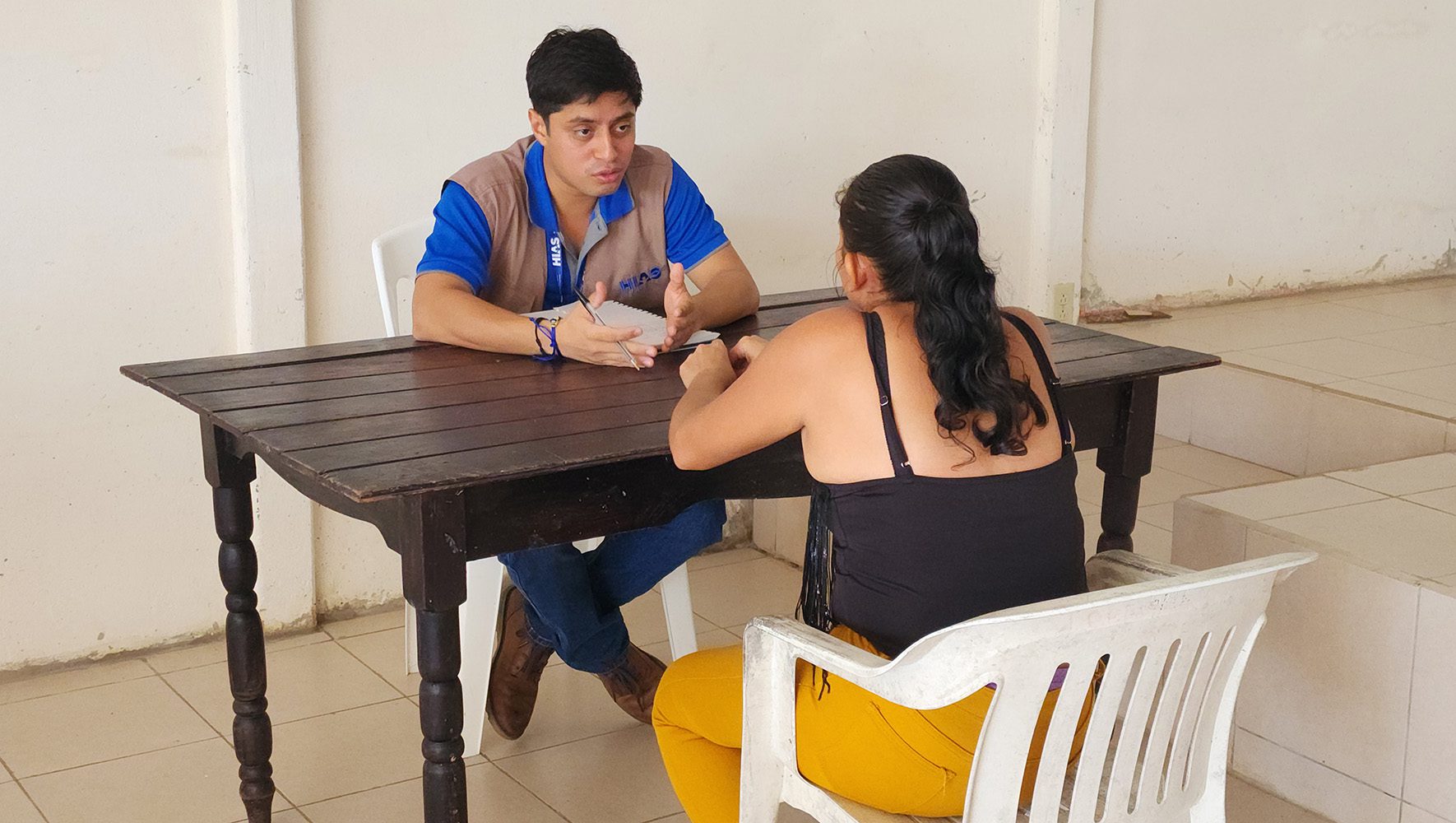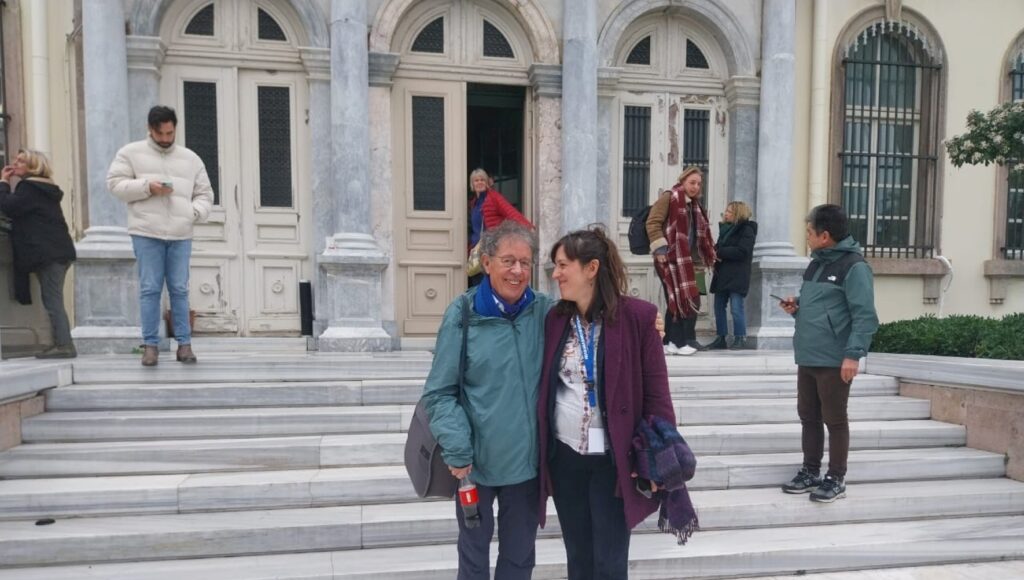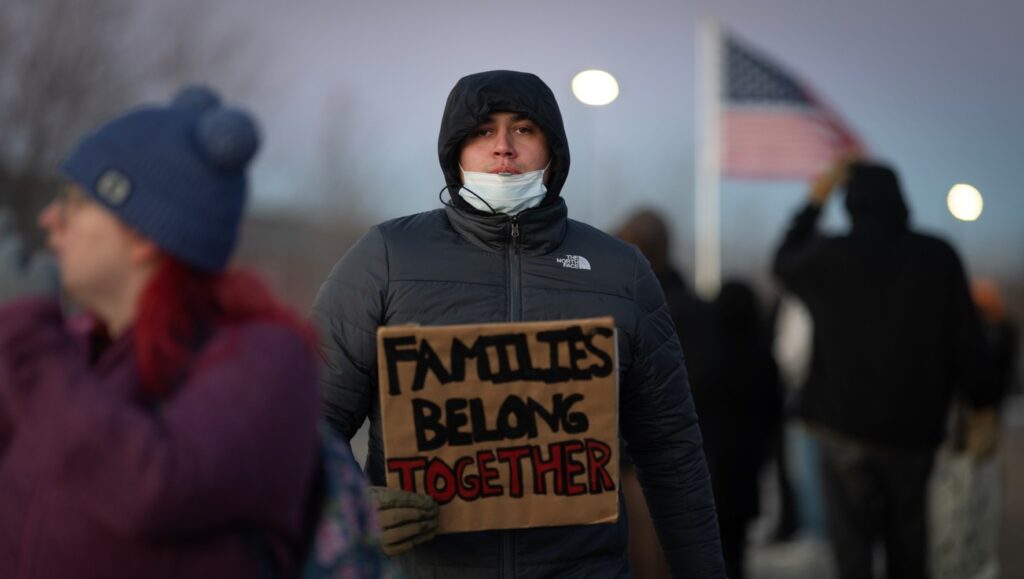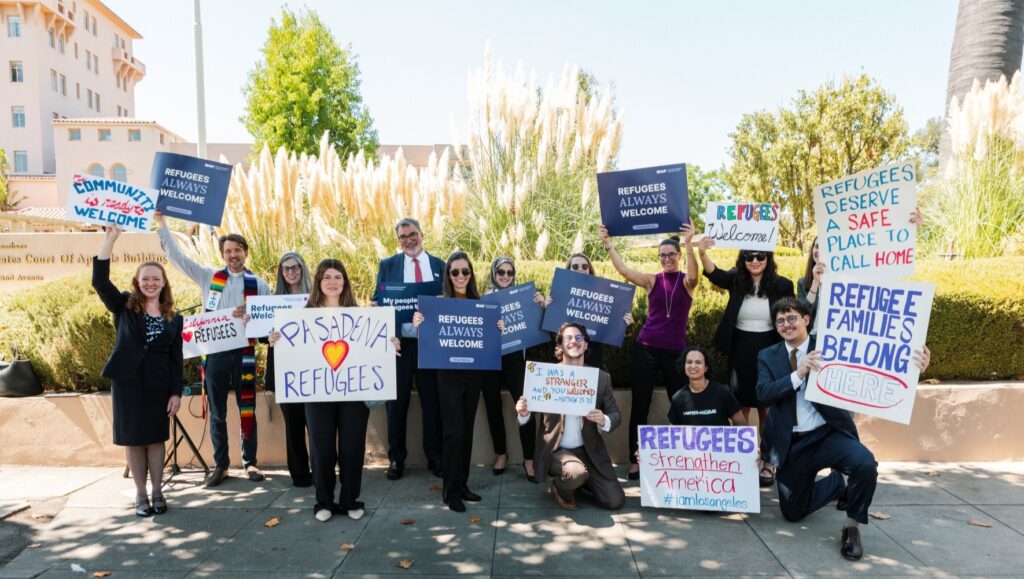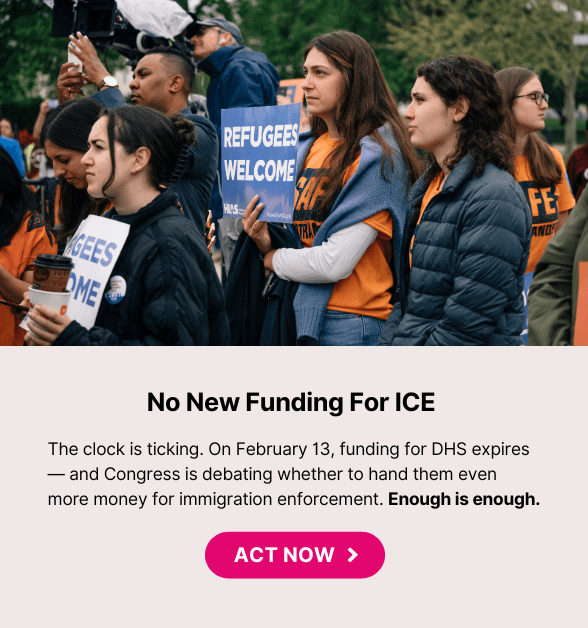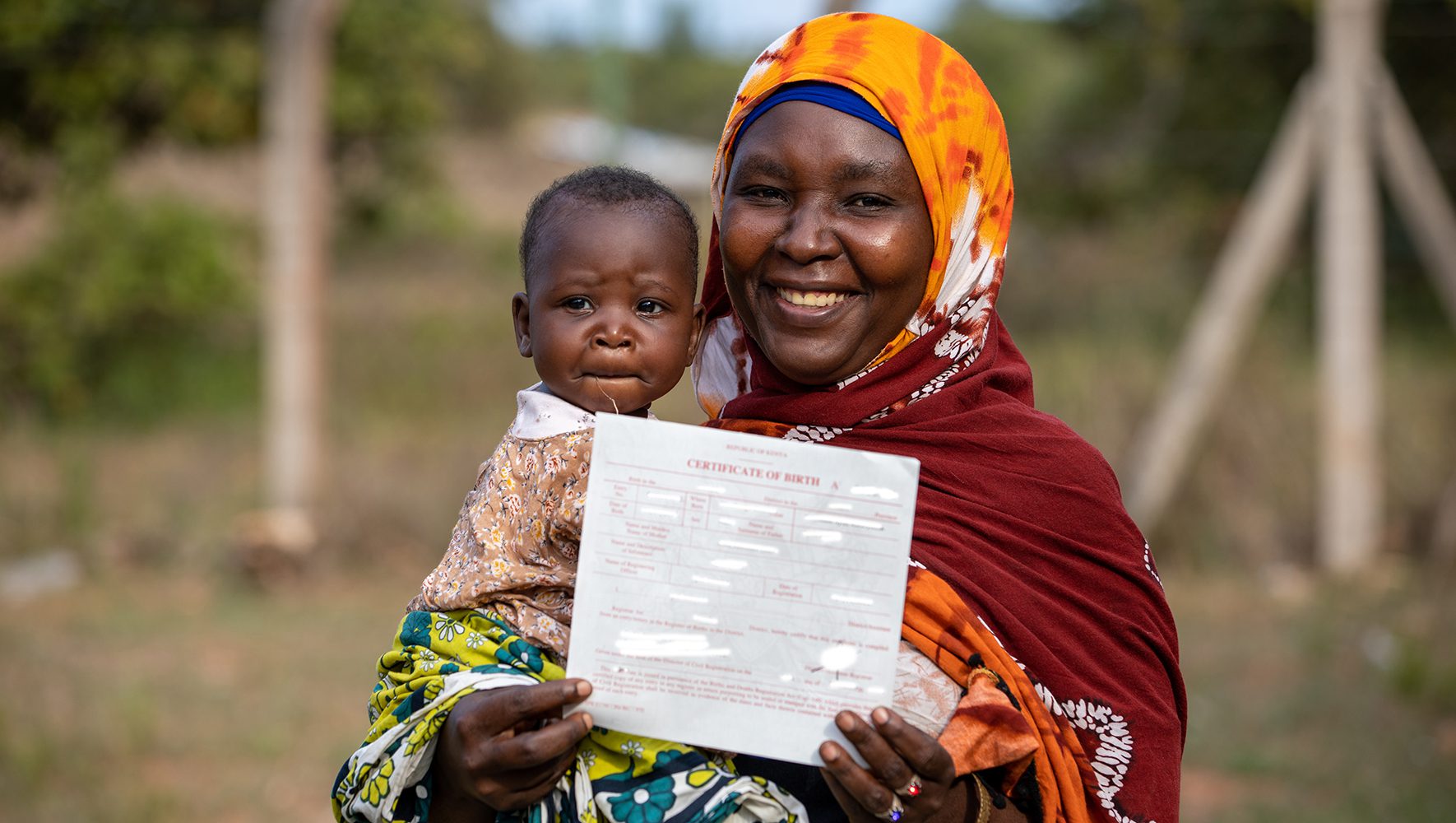
Asha Suleiman, a Kenyan mother, happily displays the birth certificate she has obtained for her daughter. Access to birth registration and other legal documentation is important to establish an individual’s legal identity, helping to prevent statelessness. (Charity Nzomo/UNHCR)
Millions of people around the world are stateless — individuals not recognized by any country as citizens. Without citizenship, they are routinely denied the rights most people take for granted, including education, healthcare, employment, housing, marriage, freedom of movement, and political participation. Stateless people are also more likely to face discrimination, exploitation, and abuse because of their legal status. HIAS provides vital services, including direct legal support, to stateless people around the world and advocates for their rights.
What is statelessness?
Under international law, a stateless person is someone “who is not considered as a national by any state under the operation of its law”.
Every country creates its own rules for how people receive and lose citizenship. For example, some countries grant nationality to children born within their territory, while others grant nationality to the children of their citizens. People can become stateless if they fall into the gaps between these laws. They can also become stateless due to discriminatory nationality laws, the creation of new countries or movement of borders, or being stripped of their nationality. Some people are stateless from birth, while others become stateless later in life. Being undocumented does not necessarily make a person stateless, but a lack of documentation such as a birth certificate can put people at risk of statelessness.
The United Nations estimates that there are approximately 4.4 million stateless people — approximately one-third of whom are children — living in nearly 100 countries, but it is likely that the total is significantly higher. Though some stateless people are also forcibly displaced from their home country, most have lived their entire lives in the country of their birth.
How does HIAS help stateless people?
While stateless people experience many of the same challenges as forcibly displaced people, they also have distinct needs that HIAS seeks to meet. HIAS provides free legal support to stateless individuals to help them gain more rights, from guidance on obtaining documentation to full representation in legal proceedings. Stateless people also benefit from HIAS’ other programs, including economic empowerment, community-based mental health support, and protection services.
HIAS also advocates for policies that uphold the fundamental rights of stateless people. We strive to help end statelessness by leveraging evidence and insights from our humanitarian operations on the ground, as well as organizational expertise on displacement.
Impact
Statelessness FAQS
Statelessness can be caused by several factors:
- Discrimination in nationality laws (including racial, religious, disability and/or gender discrimination) can cause statelessness. For example, certain countries may not allow racial minorities or women to pass on nationality.
- Children born in a foreign country may become stateless if that country does not grant nationality to those born in its territory and their parent’s home country does not allow them to pass on nationality through family ties.
- The creation of new countries, transfers of territory between existing countries, or changes in borders can result in the exclusion of groups of people that may find it difficult to prove their links to a particular country. For example, many people were made stateless after the dissolution of the USSR.
- For children born in certain situations, such as to refugee or asylum seeker parents or to parents from different countries, lack of birth registration can lead to statelessness. Not all children who lack birth registration are stateless.
- Denationalization occurs when a country strips a citizen of their nationality. This can occur when a citizen resides outside of their country for a long period of time or when a country takes away citizenship for prejudicial and/or punitive purposes.
- Displacement from one’s home country can be the cause and/or the consequence of statelessness.
Stateless people live all over the world, and as such live in all of the countries in which HIAS operates. Most stateless people live in the countries in which they were born. Countries with the highest stateless populations as of 2023 include Cote d’Ivoire, Bangladesh, Myanmar, Thailand, Latvia, Syria, Malaysia, Russia, Kuwait, and Cambodia.
Stateless people are provided no legal protection and denied basic human rights. They have no entitlement to any right that is associated with citizenship. That includes almost all basic and daily activities, including rights to education, healthcare, employment, housing, marriage, freedom of movement, political participation, and even the dignity of an official burial and a death certificate when they die.
Stateless people are also particularly vulnerable to discrimination, exploitation and abuse — including arbitrary detention, forced labor, trafficking and violence. In addition to these physical harms, stateless individuals suffer major mental health impacts. Lack of identity can lead to issues with self-esteem, self-image, social inclusion, and cultural identity.
Together, we can help create a world in which refugees find welcome, safety, and opportunity.
Your gift will help us provide vital services to refugees and asylum seekers and advocate for their fundamental rights so they can rebuild their lives.
